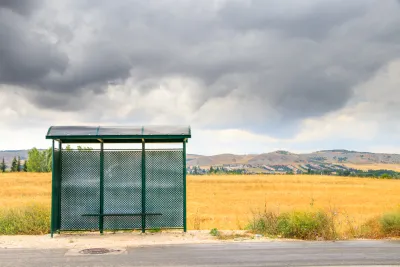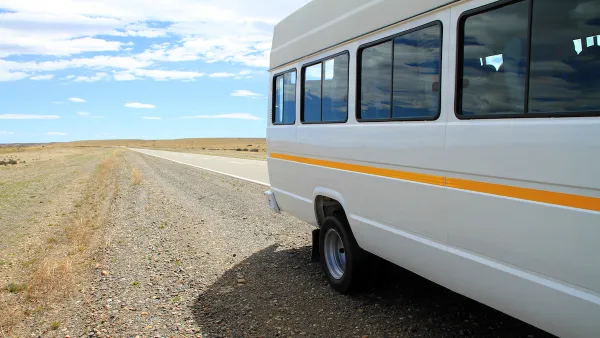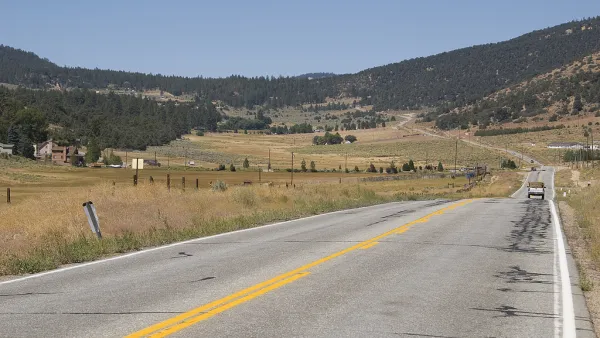With limited resources and dispersed service areas, rural transit systems are turning to technology to provide on-demand service and improve transit options for residents.

"Good public transportation in any city is a lifeline for accessing jobs, healthcare and education." But "While some assume everyone in rural America owns a car, most counties with high rates of zero-car households are actually rural ones," write Scott James Matheson and Sam Couvillon. "[M]ost rural areas have been cut off from access to effective public transportation for years. But that is starting to change thanks to new transit innovations that rural communities are putting in place, a welcome trend that federal infrastructure dollars could accelerate."
Matheson and Couvillon, both mayors of small Georgia towns, say "Public transit has always looked different in communities like ours," with needs that fixed-route bus systems and trains can't meet as efficiently as in big cities.
But there is another, game-changing approach, write Matheson and Couvillon. "We’re using technology to run our own on-demand transit services that are efficient and are drastically expanding access to affordable, convenient and reliable transit. We launched these innovative transit services in a matter of months — not years or decades — by focusing on outcomes for who we want to serve and embracing new ways that get us there."
Valdosta, where Matheson is mayor, launched an on-demand public transit service that has received over 14,000 ride requests per month. Gainesville, the city where Couvillon serves as mayor, "launched WeGo to replace three underperforming fixed routes and immediately saw dramatic improvements," quickly expanding the program to the entire county.
We recently noted a similar argument for the potential of small and rural transit systems to lead the way in electrification. As the authors of this article note, there's an advantage to not having to wait decades for massive, resource-intensive projects. Using technology and on-demand services, "We can deliver transformative, game-changing transit service in a way that is efficient, flexible and adaptable to a community’s mobility needs."
FULL STORY: What big cities can learn from the rural US about public transit

Analysis: Cybertruck Fatality Rate Far Exceeds That of Ford Pinto
The Tesla Cybertruck was recalled seven times last year.

National Parks Layoffs Will Cause Communities to Lose Billions
Thousands of essential park workers were laid off this week, just before the busy spring break season.

Retro-silient?: America’s First “Eco-burb,” The Woodlands Turns 50
A master-planned community north of Houston offers lessons on green infrastructure and resilient design, but falls short of its founder’s lofty affordability and walkability goals.

Test News Post 1
This is a summary

Analysis: Cybertruck Fatality Rate Far Exceeds That of Ford Pinto
The Tesla Cybertruck was recalled seven times last year.

Test News Headline 46
Test for the image on the front page.
Urban Design for Planners 1: Software Tools
This six-course series explores essential urban design concepts using open source software and equips planners with the tools they need to participate fully in the urban design process.
Planning for Universal Design
Learn the tools for implementing Universal Design in planning regulations.
EMC Planning Group, Inc.
Planetizen
Planetizen
Mpact (formerly Rail~Volution)
Great Falls Development Authority, Inc.
HUDs Office of Policy Development and Research
NYU Wagner Graduate School of Public Service




























